The teacher in green uniform
When the rays of the new day begin to close, that is also the time when the special class, in the border commune of Ia Mor, Chu Prong district, Gia Lai province, begins to light up. The reason we call it a special class is because the teachers standing on the podium are soldiers in green uniforms, the students are of many ethnicities, of all ages. Because of life and for many other reasons, the elderly over 70 years old, or the young men of eighteen or twenty years old come to class with the desire to learn to read and write.
Through many ups and downs of history, Ia Mor commune has formed a residential area with 103 households and 561 people, belonging to 7 ethnic groups. Lieutenant Colonel Nguyen Van Thanh, Political Commissar of Ia Lop Border Guard Station, said that in the area where the Border Guard Station is stationed, there is a residential area of Suoi Khon with 71 Jrai ethnic people who are currently illiterate. Through many times of encouragement, the people understand the suffering of not knowing how to read and write, which is very disadvantageous, so they want to eliminate illiteracy. Therefore, the Party Committee and the unit commander have developed a plan, reported to the Command leaders and received approval to open this illiteracy eradication class. The class consists of 15 students, studying 3 sessions per week, studying 2 subjects including Math and Vietnamese.
Teaching the class were soldiers in green uniforms, including: Lieutenant Colonel Vu Van Hoang, a professional soldier, in charge of Math, and Captain Nguyen Van Luan, head of the mass mobilization team, teaching Vietnamese. Captain Nguyen Van Luan said that the border area has harsh weather conditions, barren land, difficult lives, and people are not very interested in reading. With the border guards going to every alley, knocking on every door to propagate and mobilize, people clearly saw the importance and enthusiastically responded to the class.
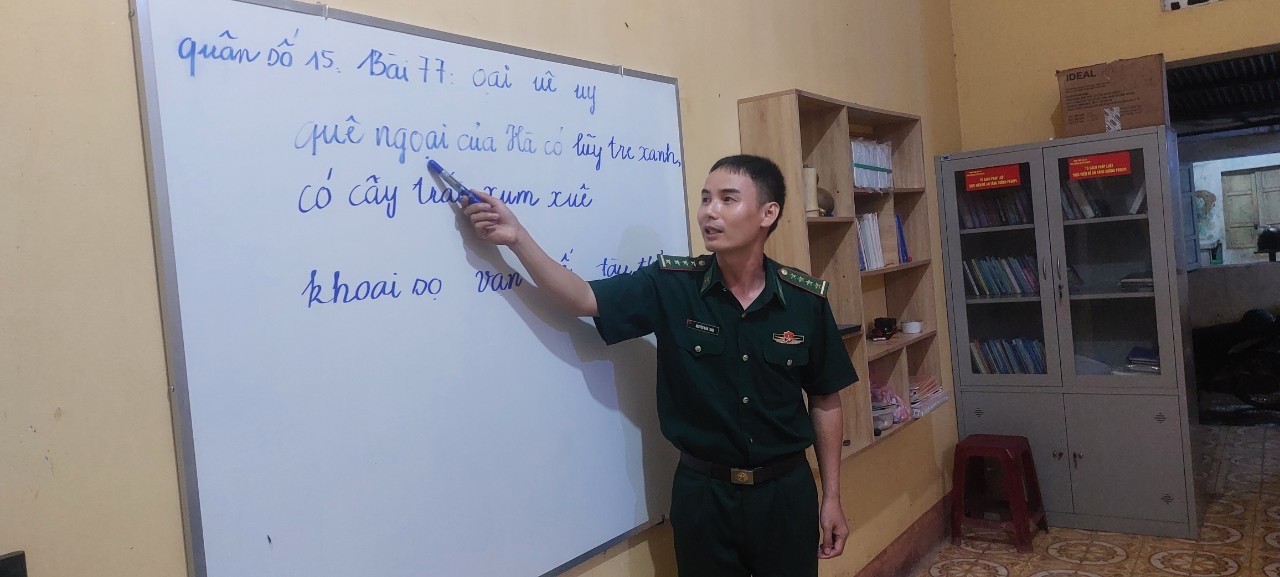
Captain Nguyen Van Luan hopes that people will learn to read and write to make life less difficult.
Sharing with us, Lieutenant Colonel Vu Van Hoang worried: “Opening a class is difficult, but maintaining its development in the long term is even more difficult. Because during the harvest season, people are busy with farming, so to have a class with equal numbers, the local guards have to go to people's homes to take them to class. The ages of the participants in the class are different, the oldest is nearly 50 years old, the youngest is 15 years old, so the teaching methods are also different. In school, you can scold, but not in this class, you have to slowly encourage, talk while teaching, grasp the psychology, cannot have angry actions, be sincere then people will learn”.
Just returning from the field, Mr. Kpah Choan, born in 1962, took a quick shower and then drove his son Kpah Vot, born in 2004, to class. Mr. Choan confided: “My family has 8 children, Vot is the youngest, in the past he did not want to go to school so I loved him very much. Now, the Border Guard opened a class, and it took a long time to encourage him to go. It is also strange, only when his father drove him to class did he go, otherwise he would stay at home. Therefore, when it is time for class, I have to drive him, no matter how busy I am, I have to let my son go to learn so that he will not be disadvantaged later on.”

Since the literacy classes were opened, many people have learned to read and write.
Special Class
At the end of the Vietnamese class, Kpah Vot's face was radiant: "I know how to read and write, so I won't be afraid of being laughed at by my friends wherever I go. Sometimes when there are parties in the village, I see my friends singing karaoke but I don't know how to read and write, so I feel sad. Knowing how to read and write, I will try to read books and newspapers in the future to learn how to make a living, hoping to have a more prosperous life."
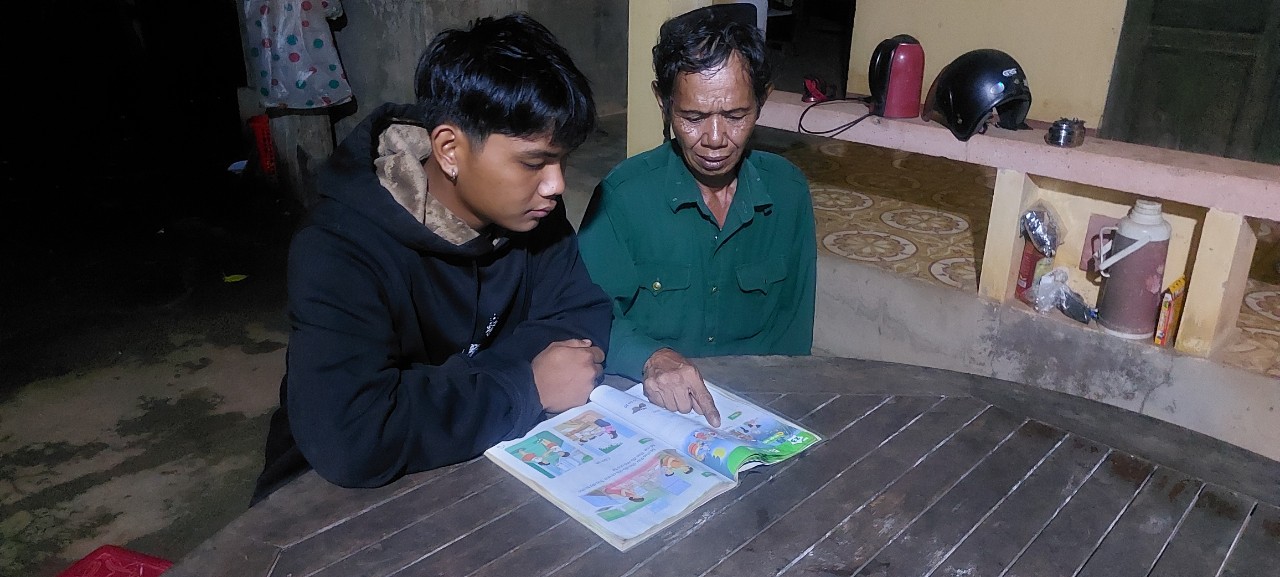
Kpah Vot proudly showed his father that he could read and write.
Siu Nghinh, born in 2003, excitedly said: “Before, I was illiterate. Every time I bought or sold something, I used my fingerprints, so sometimes I was cheated. My family has four siblings, they all know how to read and write, but when I was in school, I was too lazy so I quit early. I wanted to learn to read and write first so I wouldn’t be cheated, and second so I could teach my children. Before, I was worried about losing money going to school, then the cost of books, notebooks, and pens, so I was very worried. But when I came here, the teachers gave me all the school supplies, books, and sometimes when I didn’t have a car, the teachers came to pick me up, which made me very happy. Studying here is very fun because the teachers care about me. If I don’t understand something, I ask the teachers, and they all explain it enthusiastically, so we are very happy.”
Sitting in class, reading the lesson and pointing out each drawing, teaching her child Vietnamese, Ms. Siu H' Nghen shared: "My child is only four years old. When the Border Guard encouraged me to go to school, my husband did not want to let me go at first because he had to stay home to look after the child. But I said I would take my child to school, and then my husband agreed. When I went to class, he learned to read and do math, and the border guards gave him candy. Many times during class, my child cried, and the guards helped me comfort him, so I was very happy."
The wall clock chimed to signal the end of the class, the sounds of greeting each other were filled with warm affection between the army and the people. Captain Nguyen Van Luan shared: “In a residential area where there are more than 70 illiterate people, the lives of the people are still too disadvantaged. Therefore, we are willing to do anything for the people, even though the unit's budget is limited, we will open more classes. Eradicating illiteracy is a must, but how to prevent illiteracy from recurring is the most difficult thing that we need to focus on maintaining.”
Saying goodbye to the teachers in green uniforms, we left under the pouring rain. The frontier was harsh, with the wind howling constantly, and the roads muddy. We wished the teachers in green uniforms “strength and courage”, and that their classes would reap many glorious successes.
Source




![[Photo] Hanoi morning of October 1: Prolonged flooding, people wade to work](https://vphoto.vietnam.vn/thumb/1200x675/vietnam/resource/IMAGE/2025/10/1/189be28938e3493fa26b2938efa2059e)










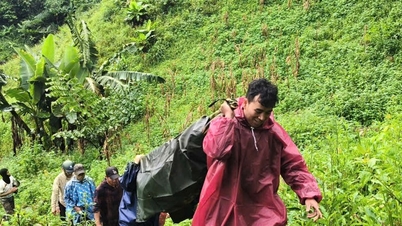

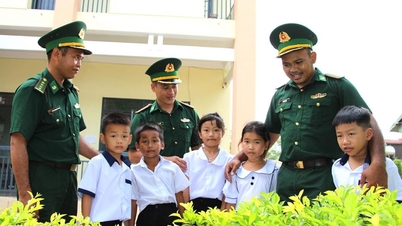






















![[Photo] Panorama of the cable-stayed bridge, the final bottleneck of the Ben Luc-Long Thanh expressway](https://vphoto.vietnam.vn/thumb/1200x675/vietnam/resource/IMAGE/2025/9/30/391fdf21025541d6b2f092e49a17243f)
![[Photo] President Luong Cuong receives President of the Cuban National Assembly Esteban Lazo Hernandez](https://vphoto.vietnam.vn/thumb/1200x675/vietnam/resource/IMAGE/2025/9/30/4d38932911c24f6ea1936252bd5427fa)































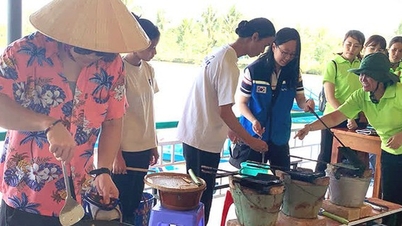




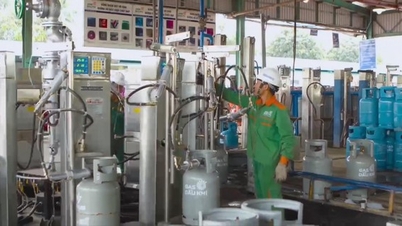


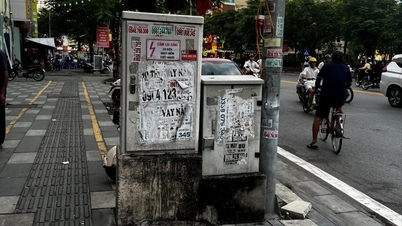
















Comment (0)